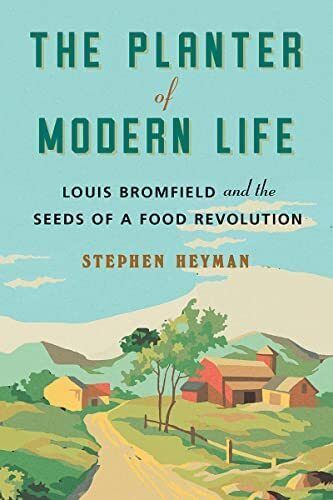True Story Book Club: The Planter of Modern Life: Louis Bromfield and the Seeds of a Food Revolution by Stephen Heyman

How a leading writer of the Lost Generation became America’s most famous farmer and inspired the organic food movement.
Louis Bromfield was a World War I ambulance driver, a Paris expat, and a Pulitzer Prize–winning novelist as famous in the 1920s as Hemingway or Fitzgerald. But he cashed in his literary success to finance a wild agrarian dream in his native Ohio. The ideas he planted at his utopian experimental farm, Malabar, would inspire America’s first generation of organic farmers and popularize the tenets of environmentalism years before Rachel Carson’s Silent Spring. A lanky Midwestern farm boy dressed up like a Left Bank bohemian, Bromfield stood out in literary Paris for his lavish hospitality and his green thumb. He built a magnificent garden outside the city where he entertained aristocrats, movie stars, flower breeders, and writers of all stripes. Gertrude Stein enjoyed his food, Edith Wharton admired his roses, Ernest Hemingway boiled with jealousy over his critical acclaim. Millions savored his novels, which were turned into Broadway plays and Hollywood blockbusters, yet Bromfield’s greatest passion was the soil.
In 1938, Bromfield returned to Ohio to transform 600 badly eroded acres into a thriving cooperative farm, which became a mecca for agricultural pioneers and a country retreat for celebrities like Humphrey Bogart and Lauren Bacall (who were married there in 1945).
This sweeping biography unearths a lost icon of American culture, a fascinating, hilarious and unclassifiable character who―between writing and plowing―also dabbled in global politics and high society. Through it all, he fought for an agriculture that would enrich the soil and protect the planet. While Bromfield’s name has faded into obscurity, his mission seems more critical today than ever before.








